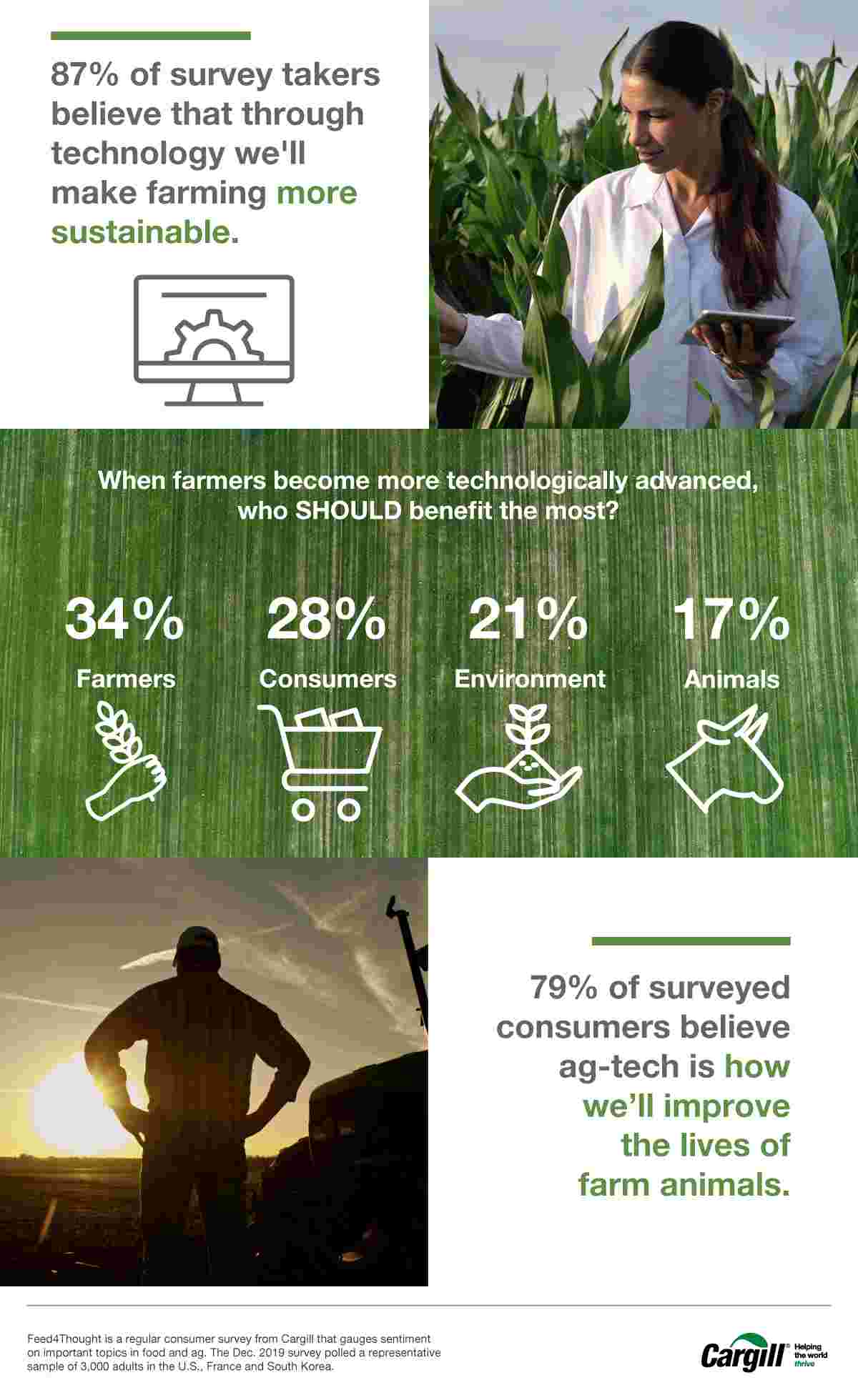Consumers Know Technology in Ag is Important – but Remain Skeptical
December 20, 2020
- Ag-tech is the intersection that can fulfill consumer and producer priorities
- Only about 50 percent want their food to come from a technologically advanced farm
- 87 percent of consumers believe technology is key to making farming more sustainable
Technology is integral to agriculture’s success. A recent global study revealed that consumers know technology in agriculture is how we’ll feed a growing population, make farming more sustainable and improve the lives of farm animals.
At the same time, only about half of those surveyed want their food to come from a technologically advanced farm.
Consumers believe technology in ag is how we’ll feed the world more sustainably – but that doesn’t mean they want it.
What consumers need to know
Oftentimes, consumers think their expectations for diverse, high-quality protein raised using environmentally responsible production methods put them at odds with producers. But producers share those same goals – and ag-tech can deliver on consumer and producer priorities simultaneously.
When it comes to tech investments, respondents named “consumers desire traditional products” as one of the top barriers to farmers adopting tech – second only to “the economics of farming make it difficult to invest in technology.”
Beef farmer Joe Klute knows the feed technology he uses helps him raise healthy animals and produce high-quality protein – which adds value to his products.
“Consumers want to know the animal has been fed a healthy diet,” Klute said. “They’re willing to pay for that security, that safety. That means they need a feed that works naturally within the animal.”
The van Bergeijks of Canada’s Mountainoak say technology plays a large role in helping them monitor animal health and well-being on their dairy.
“It helps me keep a close eye on the condition of my cows,” says Mountainoak co-owner Arjo van Bergeijk. “That way, I can identify and solve any health concerns or other issues that might come up – before they become serious problems.”
In addition, technology is helping farmers use less, while producing more, making farming more sustainable.
“It’s my responsibility, as a farmer, to make sure I’m doing a good job and thinking about nature,” says Shelby Fite of Mann Farms in Ohio. “Technology is making everything faster, making everything more efficient.”
Examples of this include:
- iQuatic™ helping shrimp farmers like Jose Alberto Fuentes of Ecuador’s Fuzu better manage ponds and increase harvest yields through sensors that capture data on things like water quality, feeding patterns and weather.
- Facial recognition, through a strategic partnership between Cargill and Cainthus, allowing producers to track changes in a cow’s appearance to gauge its productivity and well-being.
- Cargill’s Dairy Enteligen® analysis integrating data on milk productivity, feed formulation, cow comfort and more so farmers like the van Bergeijks can better monitor herd health.
- Real-time scans in poultry houses using Artificial Intelligence (AI) to give farmers insights so they can maximize animal comfort and health and improve efficiency.
Opportunity for growth
Industries like medicine and education are where respondents most want to see technology used. Farming ranks third – above defense, manufacturing, retail and food.
“We know that new technologies are allowing farmers to make better, faster, more informed decisions to feed a hungry world while protecting the planet,” said Sri Raj Kantamneni, managing director of Cargill’s digital business. “We also know that agriculture is still the least digitalized industry sector in the world.
“There’s a lot of opportunity – and a lot of need – for greater investment in ag-tech. This survey highlights that in order to help humanity benefit from these advancements, we first need to do a better job of explaining the value of new technologies to consumers.”
There is tremendous opportunity for agriculture to continuously improve and innovate to keep up with consumer demand – and Cargill is helping farmers innovate fast to meet the growing need.

